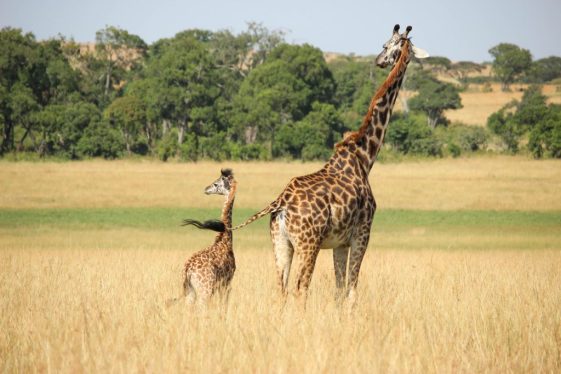
Feb 6th, 2018(Nyamilepedia) —– South Sudan is 620,000 square kilometers of incredibly diverse ecosystems. Between the swamps, tropical rainforests and grassland, it is home to some of the world’s most beautiful and intelligent animals such as elephants and giraffe. The protection of this wildlife is essential to the wellbeing of residents and it is therefore paramount that we maintain the balance of their ecosystems.
Natural Beauty and Biodiversity
Despite political challenges, South Sudan is home to some of the most stunning natural beauty on Earth. Due to global warming and deforestation, the landscape is changing at a rapid rate. If things don’t change, the entire country could be stripped of trees within a matter of years, turning it into a uninhabitable desert.
The influence of the White Nile and rain caused by the forest has allowed wildlife to thrive in this part of Africa. From birds flocking to your garden to buffalo blocking the road to work, spotting a variety of animals on a day to day basis is a normal part of living in South Sudan. These animals are under threat if we don’t change.
Challenges
The civil war has led to a fight for resources, as each side cuts down trees at an alarming rate. It is thought that even as the violence dies down, too much damage will have already occurred. Without enough forests, the ecosystem will be ruined and migrating animals will suffer.
One of the main challenges is that there is currently little legal protection for wildlife. It is not only the animals themselves that suffer from illegal logging and poaching, but many hard working citizens as well. South Sudan is home to the fish and cattle that provide a living for the farmers. If the legal protections aren’t enforced, then many people could lose their livelihoods.
How You Can Help
It is up to each and everyone of us to do something to help make a change. Petition local politicians to let them know that you care deeply about wildlife conservation. Do your research so that you can explain clearly how the economy and society will be affected by ecological disaster. Use your social media profiles to get this information out there because nothing will change if enough people don’t understand the impact.
Next, you can try volunteering. If you don’t have much money, find out how to volunteer for free. Conservation charities always need extra help, so don’t be afraid to reach out. You could be looking after injured animals, planting trees or installing solar panels. Research online for opportunities and see if you can put your skills towards protecting wildlife.
South Sudan remains a beautiful natural paradise for humans and animals alike. However, there needs to be greater legal protection to stop the devastation of the land. For the sake of the animals, farmers and all residents of South Sudan, write to politicians and volunteer to protect this amazing wilderness.